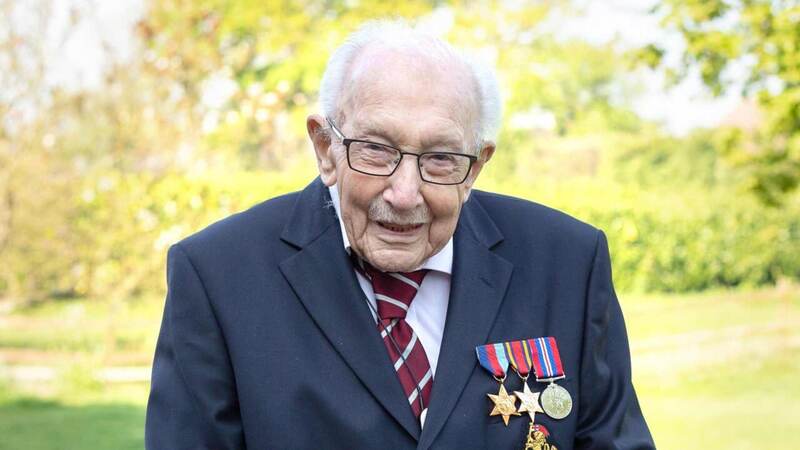You are viewing your 1 free article this month. Login to read more articles.
Swift, Ishiguro, Barnes remember Sonny Mehta at London memorial
Sonny Mehta was the "Rolls-Royce of publishers", a memorial service in London heard yesterday (Monday 9th March), as authors including Graham Swift, Kazuo Ishiguro and Julian Barnes joined publishers Markus Dohle and Gail Rebuck to pay tribute to the long-time editor-in-chief of Knopf, who died in December.
The event, held at One Marylebone NW1, was originally scheduled to coincide with London Book Fair, but went ahead as planned despite the fair's cancellation.
Penguin Random House c.e.o. Markus Dohle told a packed audience: "Sonny has been the central figure of my professional life for the past dozen years; by title, I lead Penguin Random House, but I always told everyone 'I work for Sonny'... In many ways Sonny's life was of epic proportions; his career achievements as a publisher were unparalleled; his pure instinct for our business unmatched; as was his dedication to his authors and their stories. As chairman and editor-in-chief of Alfred A Knopf, Sonny defined the quality of American letters more than anyone else for 30 years. When I think of Sonny, I think of his insatiable curiosity and creativity, his generosity, humanity, his elegance, and yes of course, his coolness... The only thing that mattered to Sonny was the quality of the work; the content, and package; and the quality of how you bring it to market. "
PRH chairman Gail Rebuck remembered "a great publisher and an even greater friend to so many here today", saying: "Sonny brought his distinctive style to Knopf, ensuring it stayed, as he said, the classiest publisher in town. He loved taking risks and was an instinctive and bold decision-maker, equally at home with literature and mass market; he had great visual taste and had no qualms about aggressive marketing in a literary world full of Nobel Laureates, Booker and Pulitzer Prize winners.
"The love and respect we feel in this room today is not just for someone who loved to read, but someone who knew how to lead, to build, to guide, to strategise, to have bold visions and to bring them into being; and to love too, to love books, to love publishing, to love great writers and the worlds they created. A sublime soul indeed; so light yet so immense. There is no end to our grief because there is no end to the love he gave, to the love we feel and to the loss we now bear."
Graham Swift paid tribute to his nearly 40-year working relationship with Mehta, and the deep care he gave his authors, paying as much attention to their UK publication as their US ones. Having just published his latest novel in the UK, Swift said, "I already miss his ever timely email, 'How's it going over there? Bearing up?' Well yes, Sonny, I am bearing up, but it's not the same without you. I can't be alone among his authors in feeling the sense of being watched over, it was something he uniquely gave. He made you feel that what you did mattered. If you were a bit down, down with your writing or just with the whole damn shebang, Sonny always raised you up; gave things a dignity, a real, not flaky, glamour once again. I don't know how he did it, but he did it unfailingly for me.
"People talk about his aura, his magic; he just had a simple, personal ability to make things better. A champion among publishers indeed. But his true gift was to champion you, to champion his authors. To be championed by a champion for nearly 40 years, most of my published life, I have had with Sonny or because of Sonny, some of the greatest times of my life."
Fellow novelist Julian Barnes said: "Publishers range across the full spectrum of human personality; at the hot end, red and orange, the egomaniacs who often act as though they have written the book they publish; at the opposite, the cool end, those who work in silence and who disappear completely behind the books they publish. Sonny, being a fiercely original character, was off the spectrum, ultra violet, super cool... I used to think that the words great and publisher shouldn't be used in the same sentence; but Sonny made the apposition both easy and right."
Barnes said Mehta, the "Rolls-Royce of publishers", "declined to acknowledge the gibbering neediness" in writers; author Robert Harris agreed that Mehta didn't "gush" or "dissemble"; "he was the only editor I've ever had who would forward bad reviews," he noted. Preti Taneja, whose debut novel, We That Are Young Mehta, published in the US, said Mehta knew what it was to be an outsider, and that he "made space for the risk-takers and rebels, because I think at his heart he was one."
Novelist Kazuo Ishiguro stressed the special care Mehta gave to his authors, from the first days when he took a young Ishiguro—visiting New York for this first time—into his home. "Here I believe is a key to his peculiar esteem for writers, an insight into Sonny Mehta that eventually managed to dispel most of my impostor syndrome," he said. "We were an essential part of a vision he had, a project to which he was massively dedicated. He believed in the value of a broad, thriving reading culture, believed good books were fundamental to a decent human society. That's why he felt the pride he did when he thought he'd done his work well... The way he regarded authors was not in the end an eccentric error; any more than was the reverence he showed for certain booksellers or publishing colleagues. He had huge faith in the importance of what many of us gathered here now, in our different ways, strive to do each day. I am grateful I was alive at the same time as this brilliant, gentle, graceful, unfailing gracious man, and to have received his counsel and his friendship."
Meanwhile Virago founder Carmen Callil remembered her 50-year friendship with Mehta, beginning in the heady days of London in the 1960s, through the founding of Paladin, and continuing throughout his years at Pan and hers at Virago, and his later move to New York. She said: "What a lovely person he was. He had a great heart. He was that rare thing, an honourable human being, a man with love in his heart for his wife [Gita] and son and family, for books, writers, music, food, drink and so many other things; and for his myriad number of friends." Publicist Jacqui Graham recalled a memorable interview with Mehta in London in 1977 for a job as Pan Books chief press officer, when she was ushered into a room in near-darkness, with Mehta nursing a bottle of Scotch, and she herself drinking half a bottle of Campari before it was through. Remembering publishing bestsellers with Pan and Picador ranging from Jackie Collins and Wilbur Smith to Toni Morrison and Salman Rushdie, she said: "The 10 years I spent working with Sonny at Pan were absolutely the best of my professional life."















